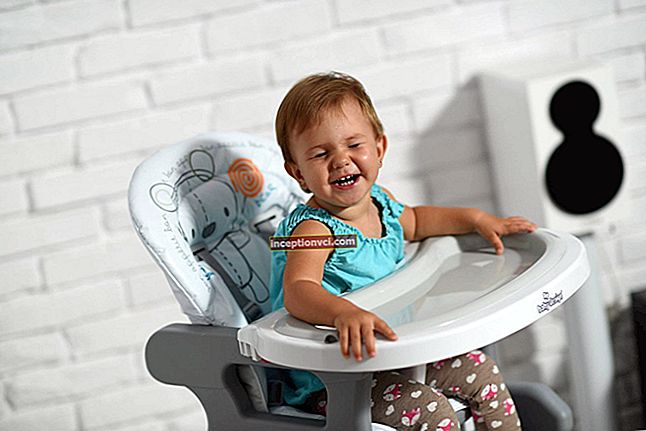There are no children who would not like to draw. And you can hardly find parents who would not have to buy coloring books for their kids. But, unfortunately, no one or almost no one pays attention to what is hidden behind the bright cover. And oddly enough, but psychologists also do not spend a lot of their time researching colorings, or rather, what they mean.
Coloring various pictures is not only interesting, but also very rewarding. Painting pictures will help the child expand knowledge about the environment, get acquainted with colors and shapes, and learn to carefully shade (for this, first you need to offer the child to carefully paint over the element around the perimeter and only then paint it entirely). Coloring pages will also help you acquaint your child with the peculiarities of drawing with pencils and paints, develop fine motor skills, and this, in turn, will make the brush more flexible, which in the future will save the child from problems in mastering writing. Working with paints and colored pencils helps little people develop color perception, train their fine motor skills, and gain experience in understanding perspective. Coloring pages introduce the child to the art of painting. Also, in the process of coloring, visual and kinesthetic channels for obtaining information work, interhemispheric interaction develops. And, of course, the child gets a lot of positive emotions.
Coloring pages teach children how to reduce the swing of the hand when drawing - when kids draw, they do not pay much attention to the borders of the sheet and its pictures, the lines sometimes go out partially, and sometimes completely on other books, the table and your expensive wallpaper.
The drawings will help children learn the laws of the world and embody their own color discoveries. If your baby painted an elephant orange or pink, then you shouldn't scold him. Most likely, your genius has his own idea of this, the best thing is to ask him why he chose these colors (moreover, this will reveal color blindness at an early age).
Offer your child a coloring book at the age of one and a half, but you need to choose drawings specially designed for them, that is, those where you can draw with your own hands, and not with pencils or brushes. Just remember to get water-based paints. For a child, this should become not only a developmental activity, but also a game. Dip your finger in the paint with the baby and let him try to get into the outline of the drawing. At the same time, comment on everything you give, for example: "This round ball will be colored yellow." And make sure that your little artist does not "go" over the edges. Thus, with the help of coloring, the child will get acquainted with colors, shapes, and learn to be accurate.
Just do not force the kid to do this, if he is tired, let him do something else. It is even better if you predicted and stopped drawing a little earlier than the child gets tired, then he will definitely look forward to the next lesson.
In coloring pages for such young children, the drawings are very simple and straightforward. The objects that are depicted there must be well known to the child, for example, a ball, a cube, an apple, a bunny, etc. Each drawing must necessarily have a wide outline - approximately 1 centimeter. For such a line it will be difficult to get out of the not yet trained hand of the baby. It will also hide the baby's inaccuracies and give him self-confidence. Also pay attention to the outline of the pictures, they should be without corners and complex bends.
It is best to choose coloring pages in which the drawings are accompanied by text. This will help you to arouse the child's interest in coloring with the help of the game.

When coloring, the kid can show imagination and add some details to the drawings. For example, embellish the toy with dashes or dots, draw a leash for the dog, and draw cheese for the bear, draw reeds around the frog
Somewhere in 3-4 years, children reach the age of the first protest and the first discoveries and serious skills. The child receives the coveted colored pencils and learns to use them correctly.
And since the child is already more confident with the brush, you can present him with colored pencils, and you can also see with what pleasure he paints pictures. And drawings in coloring pages are perceived as already created images that lack a color scheme. And therefore, kids do not draw freely, like children 2-3 years old, but they paint without going beyond a given contour, trying to repeat all the bends of a drawn object. The kid is already old enough to teach him how to hold pencils or brushes correctly. So be sure to keep an eye on this. This may cause protest in the child, but still return the pencil to the correct position in his hand. If, nevertheless, the little artist does not like it, go back to drawing with your fingers. And soon the child himself will want to take the pencils again.
To draw with pencils, first give your baby simple coloring pages with large drawings. If you have mastered it, go to your favorite fairy-tale characters.
From the age of four, the time for active preparation for school begins. Therefore, you need to choose the appropriate pictures. They should be more complex in design and texture.
Try to use developmental coloring pages, for example, those where you need to connect the contour at the points indicated by numbers.

Such tasks develop the child's perseverance and attentiveness, and will also help teach children to count. There are coloring labyrinths that develop logical thinking, and coloring with texts will push you to the desire to learn to read.

For the development of writing, coloring pages are perfect, where you need not just color in pictures, but you need to shade them, draw vertical, horizontal and diagonal lines. If a child learns to draw lines and draw different shapes, then at school he will not have any problems with writing tasks at school.
Coloring books are also suitable for younger students, for them, according to psychologists, this is a kind of "anti-stress". Painting over pictures, the child is distracted from the lessons and, as it were, plunges into the "world of childhood." This will help him get ready to relax. And this is necessary for him, since school for him is a new environment, a lot of new acquaintances, which means stress.
And some psychologists even argue that coloring can help in this way, not only for children, but also for adults.
This is due to the fact that during drawing, a person pours all his emotions onto paper with the help of paints. But I wonder if there is a backlash? For example, an artist with sharp nerve lines splashed out his inner aggression, and then the child will look and repeat all the same forms. Will this somehow affect the mood of the baby? Most likely, yes.
Therefore, when choosing a coloring for your young artist, pay special attention to this. And in order to be sure that you are getting something that will really help the child to develop, and not the other way around, will interfere, conduct a small test. First, find a coloring, where objects are drawn in thick lines, has at least an approximately rounded shape, and observe your feelings. Then look at the zigzag-like thin line for a while and, again, track how you react to it. With the first option, you will not feel any changes. In the second case, a certain tension arises that needs to be thrown out somewhere. And how the child will behave is not known.Perhaps this will be expressed on paper by sharp scribbling with pencils, but it may be that the negative will splash out on others.

In stores now there is such a variety of colorings so bright, beautiful, but, unfortunately, it is impossible to add to this list of qualities that they are also useful for the development of children. For some reason, manufacturers do not always think about the latter. Therefore, before you purchase a coloring book for your baby, analyze whether it meets the following criteria:
1) there should be one large main drawing on the page and one or two smaller additional ones, the main thing is that the drawing is not overloaded with details, since in the presence of many small objects, the child's attention is scattered, it is difficult for him to concentrate;
2) all images should be interesting for the child, not angry, cute and must be familiar to him;
3) the outlines of the pictures should be smooth, without sharp corners and complex bends;
4) the outline line should be thick, not only so that the child understands well where to draw, but also to hide his inaccuracies, also without sharp corners and ragged lines;
5) the painting format should correspond to the child's age, so that the kid does not spend half an hour painting one object, as he will lose interest without getting the desired result;
6) it would be more expedient if the drawing was with a color sample, this will tell the child which pencils can be used.

Now you know what you need to pay special attention to so as not to harm your own baby with a seemingly harmless coloring. Also, I think you understand that these same simple pictures will help develop intelligence and fine motor skills. In this way, you can take even the most nimble fidget. So choose, make no mistake !!!









